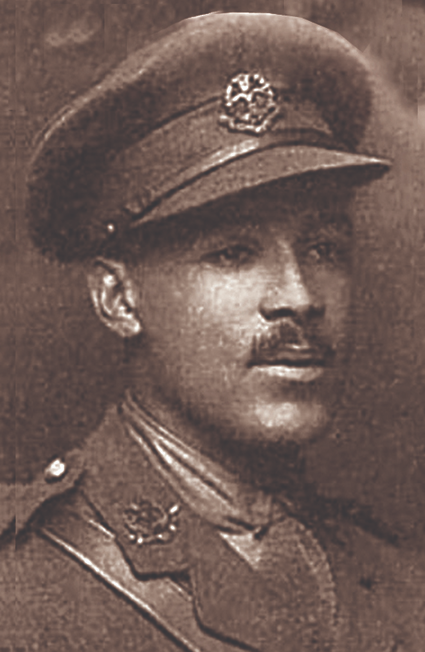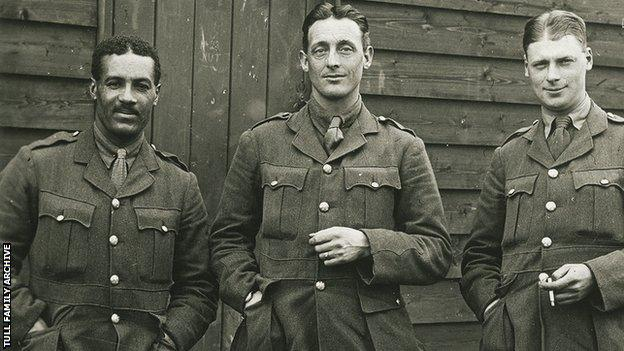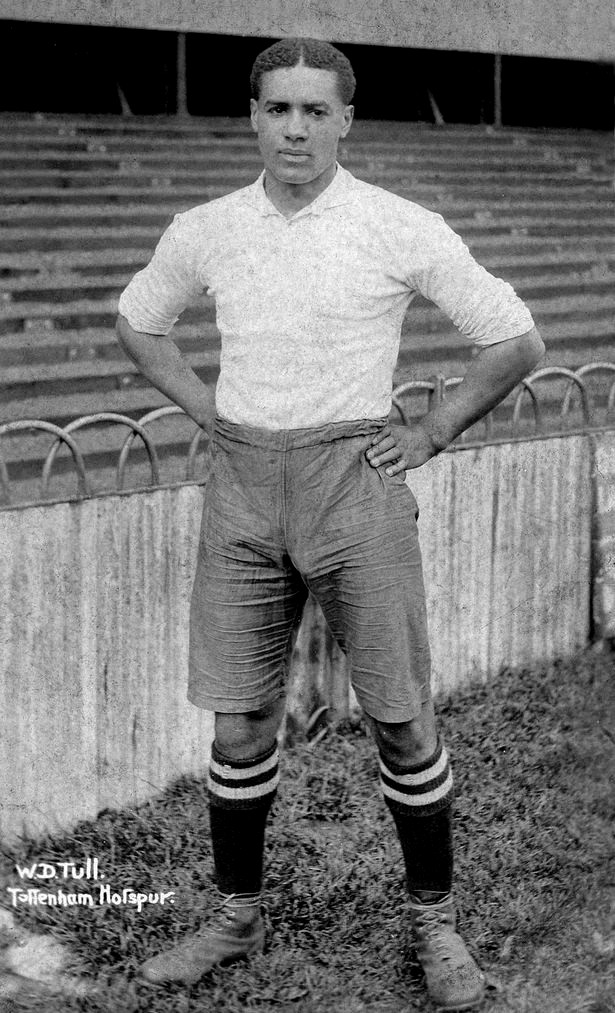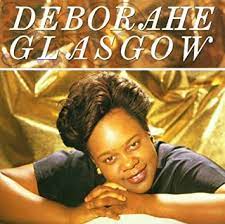Walter Daniel John Tull
WalterTull was a British born Black man who started his career as a footballer before he rose through the ranks in the First World War to become one of the first Black officers in the British army. He fought in the Battle of the Somme in 1916, and became the first Black officer to take command and lead white British troops into battle. This was a huge step in British military history as there was a military rule under Kings Regulations that read that people of colour were not allowed to give orders or even be given the chance to advance to the rank of an officer.
28 April 1888
25 March 1918
Folkestone, Kent, England
Afro-Caribbean
Usually list of achievements/ important moments/ items in their life alongside dates
1908/1909-
Walter began his football career playing for Clapton FC, during his time there he won the London Senior Cup, the FA Amateur Cup, and the London County Amateur Cup.
1 September 1909-
Joined Tottenham FC and at age 21 Walter became the first black outfield player
1911-
Started playing for Northampton town and ended up playing 110 times for them
21 December 1914-
Joined the 17th Battalion, nicknamed ‘The Diehards’, which was the first Football Battalion
18 November 1915-
Quickly rose to the rank of sergeant and was stationed and served in France
May 1916-
Sent back to the UK after being diagnosed with acute mania which we now know was shellshock
September 1916-
Returned to France and fought in the first Battle of the Somme
January 1917-
Sent to Scotland to begin his officer training
August 1917-
After successfully gaining his commission and being promoted to the rank of second lieutenant, Walter was assigned to the 23rd Battalion of the Middlesex Regiment
November 1917-
After Walter and his regiment fought in the Third Battle of Ypres, in Belgium, they were sent to the front lines in Italy where Walter officially became the first Black officer in British history to lead men into battle
1 January 1918-
Following a trench raid Walter led 26 men to safety and then was recommended for the Military Cross
25t March 1918-
Two days after being relocated to fight back in France during the second Battle of the Somme, Walter Tull lost his life
Walter Daniel John Tull was born on the 28 April 1888 to DanielTull and Alice Elizabeth Palmer. Walter’s father was originally from Barbados and moved to Folkestone in Kent in 1876 and there he met Walter’s mother. Walter also had four other siblings, Edward, Miriam, Cecilia, and Elsie. Unfortunately, Walter’s mother died of breast cancer when he was aged seven and two years later his father also died. Walter and his siblings were sent to orphanages at Bethnal Green, East London..
Before becoming a soldier in 1914, Walter Tull had made a big impact on British football. He began by playing for the East London team Clapton FC , and he would go on to win the London Senior Cup, the FA Amateur Cup, and the London County Amateur Cup during the 1908/1909 season. Following his success at the club he was invited to join Tottenham Hotspur in their pre-season tour to South America in the summer of 1909, making him the first Black player to play in South America. On 1 September 1909 Tull became the first Black outfield player to feature in the English topflight, becoming one of the first Black football players to go professional. After playing for Tottenham for two years he started playing for Northampton Town and the Glasgow rangers where it is said that he played in 110 games.
He decided to give up his football career at the age of 21 to enlist and joined the 17th Battalion, known as The Diehards. It was a football battalion made up of significant football figures such as coaches and players. During his time in training he quickly got promoted to the rank of sergeant. After being stationed in France for a year in 1915, Walter was sent back to Britain in May 1916 for having acute mania, which is now recognised as shellshock. In September 1916, Walter was sent back to fight in the front lines in the first Battle of the Somme. Walter was then selected to become an officer in the British Army.
In January 1917 he began his officer training in Scotland and by August he became an officer and a second lieutenant in the British Army even though this had been prohibited by The King’s Regulations. After joining the 23rd Battalion of the Middlesex Regiment, Walter and his regiment fought in the Third Battle of Ypres in Belgium. Following this the regiment was relocated to fight in the front lines in Italy where Walter broke barriers once again, becoming the first person of colour to lead British troops into battle. He was nominated for the Military Cross for his actions after he led soldiers over a river to safety after a trench raid. Following the second Battle of the Somme Walter was sent back to France to fight in the front lines on the 23 March 1918. Two days after fighting, Walter led an attack towards the German trenches. Walter died while trying to cross No Man’s Land and his body was never recovered. Military historian Andy Robertshaw says that Walter was likely to have been buried in an unmarked grave at Heninel-Croisilles Road Cemetery in northern France.
To commemorate Walter’s efforts, his name is engraved in the Arras Memorial, a road in Northampton was named after him and in 2014 he was featured on a £5 coin . His football clubs all have had ways to remember Walter such as a Nubian Jak Blue plaque and his induction into the National Football Museum’s Hall of Fame.
After completing his education in the orphanage, Walter decided to get a job at the local printer’s shop where he hoped to become a newspaper reporter .He also had a real passion and skill for football and went on to play football professionally, moving from club to club..
Article on theory of where Walter’s body is (11/03/22)
https://www.theguardian.com/world/2020/nov/07/historian-finds-clues-to-grave-of-britains-first-black-army-officer#:~:text=Despite%20the%20best%20efforts%20of,Tull%20may%20have%20been%20buried.
Full list of sources/ credits
A brief history
https://www.nationalarchives.gov.uk/education/resources/walter-tull/
https://en.wikipedia.org/wiki/Walter_Tull
http://www.blackhistory4schools.com/20century/blackfootballers.pdf
https://www.bexleygs.co.uk/news/?pid=93&nid=30&storyid=1315




